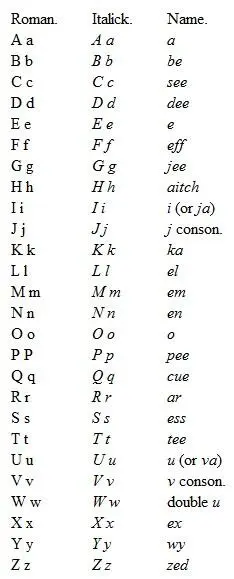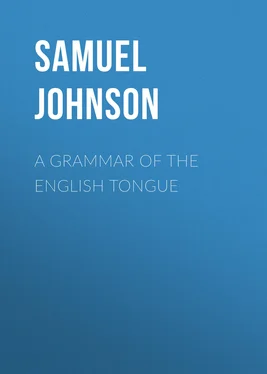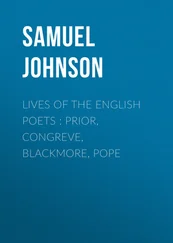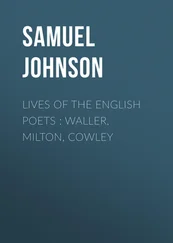Samuel Johnson - A Grammar of the English Tongue
Здесь есть возможность читать онлайн «Samuel Johnson - A Grammar of the English Tongue» — ознакомительный отрывок электронной книги совершенно бесплатно, а после прочтения отрывка купить полную версию. В некоторых случаях можно слушать аудио, скачать через торрент в формате fb2 и присутствует краткое содержание. Жанр: foreign_edu, foreign_language, Языкознание, на английском языке. Описание произведения, (предисловие) а так же отзывы посетителей доступны на портале библиотеки ЛибКат.
- Название:A Grammar of the English Tongue
- Автор:
- Жанр:
- Год:неизвестен
- ISBN:нет данных
- Рейтинг книги:4 / 5. Голосов: 1
-
Избранное:Добавить в избранное
- Отзывы:
-
Ваша оценка:
- 80
- 1
- 2
- 3
- 4
- 5
A Grammar of the English Tongue: краткое содержание, описание и аннотация
Предлагаем к чтению аннотацию, описание, краткое содержание или предисловие (зависит от того, что написал сам автор книги «A Grammar of the English Tongue»). Если вы не нашли необходимую информацию о книге — напишите в комментариях, мы постараемся отыскать её.
A Grammar of the English Tongue — читать онлайн ознакомительный отрывок
Ниже представлен текст книги, разбитый по страницам. Система сохранения места последней прочитанной страницы, позволяет с удобством читать онлайн бесплатно книгу «A Grammar of the English Tongue», без необходимости каждый раз заново искать на чём Вы остановились. Поставьте закладку, и сможете в любой момент перейти на страницу, на которой закончили чтение.
Интервал:
Закладка:
Samuel Johnson
A Grammar of the English Tongue
A GRAMMAR OF THE ENGLISH TONGUE
Grammar, which is the art of using words properly , comprises four parts: Orthography, Etymology, Syntax, and Prosody.
In this division and order of the parts of grammar I follow the common grammarians, without inquiring whether a fitter distribution might not be found. Experience has long shown this method to be so distinct as to obviate confusion, and so comprehensive as to prevent any inconvenient omissions. I likewise use the terms already received, and already understood, though perhaps others more proper might sometimes be invented. Sylburgius, and other innovators, whose new terms have sunk their learning into neglect, have left sufficient warning against the trifling ambition of teaching arts in a new language.
Orthographyis the art of combining letters into syllables, and syllables into words . It therefore teaches previously the form and sound of letters.
The letters of the English language are,

To these may be added certain combinations of letters universally used in printing; as, fl , ff , fi , ffi , ffl , and & , or and per se, and .
Our letters are commonly reckoned twenty-four, because anciently i and j as well as u and v were expressed by the same character; but as those letters, which had always different powers, have now different forms, our alphabet may be properly said to consist of twenty-six letters
Vowels are five, a , e , i , o , u .
Such is the number generally received; but for i it is the practice to write y in the end of words, as thy , holy ; before i , as from die , dying ; from beautify , beautifying ; in the words says , days , eyes ; and in words derived from the Greek, and written originally with υ, as sympathy , συμπαθεια, system , συστημα.
For u we often write w after a vowel, to make a diphthong; as, raw , grew , view , vow , flowing ; lowness .
The sounds of all the letters are various.
In treating on the letters, I shall not, like some other grammarians, inquire into the original of their form, as an antiquarian; nor into their formation and prolation by the organs of speech, as a mechanick, anatomist, or physiologist; nor into the properties and gradation of sounds, or the elegance or harshness of particular combinations, as a writer of universal and transcendental grammar. I consider the English alphabet only as it is English; and even in this narrow disquisition I follow the example of former grammarians, perhaps with more reverence than judgment, because by writing in English I suppose my reader already acquainted with the English language, and consequently able to pronounce the letters of which I teach the pronunciation; and because of sounds in general it may be observed, that words are unable to describe them. An account, therefore, of the primitive and simple letters, is useless, almost alike to those who know their sound, and those who know it not.
OF VOWELS
A has three sounds, the slender, open, and broad.
A slender is found in most words, as face , mane , and in words ending in ation , as creation , salvation , generation .
The a slender is the proper English a , called very justly by Erpenius, in his Arabick Grammar, a Anglicum cum e mistum , as having a middle sound between the open a and the e . The French have a similar sound in the word pais , and in their e masculine.
A open is the a of the Italian, or nearly resembles it; as father , rather , congratulate , fancy , glass .
A broad resembles the a of the German; as all , wall , call .
Many words pronounced with a broad were anciently written with au ; as sault , mault ; and we still say, fault , vault . This was probably the Saxon sound, for it is yet retained in the northern dialects, and in the rustick pronunciation; as maun for man , haund for hand .
The short a approaches to the a open, as grass .
The long a , if prolonged by e at the end of the word, is always slender, as graze , fame .
A forms a diphthong only with i or y , and u or w . Ai or ay , as in plain , wain , gay , clay , has only the sound of the long and slender a , and differs not in the pronunciation from plane , wane .
Au or aw has the sound of the German a, as raw , naughty .
Ae is sometimes found in Latin words not completely naturalized or assimilated, but is no English diphthong; and is more properly expressed by single e , as Cesar , Eneas .
E is the letter which occurs most frequently in the English language.
E is long, as in scēne; or short, as in cĕllar , sĕparate , cĕlebrate , mĕn , thĕn .
It is always short before a double consonant, or two consonants, as in vĕx , pĕrplexity , relĕnt , mĕdlar , rĕptile , sĕrpent , cĕllar , cĕssation , blĕssing , fĕll , fĕlling , dĕbt .
E is always mute at the end of a word, except in monosyllables that have no other vowel, as the ; or proper names, as Penelope , Phebe , Derbe ; being used to modify the foregoing consonants, as since , once , hedge , oblige ; or to lengthen the preceding vowel, as băn , bāne ; căn , cāne ; pĭn , pīne ; tŭn , tūne ; rŭb , rūbe ; pŏp , pōpe ; fĭr , fīre ; cŭr , cūre ; tŭb , tūbe .
Almost all words which now terminate in consonants ended anciently in e , as year , yeare ; wildness , wildnesse ; which e probably had the force of the French e feminine, and constituted a syllable with its associate consonant; for in old editions words are sometimes divided thus, clea-re , fel-le , knowled-ge . This e was perhaps for a time vocal or silent in poetry as convenience required; but it has been long wholly mute. Camden in his Remains calls it the silent e .
It does not always lengthen the foregoing vowel, as glŏve , lĭve , gĭve .
It has sometimes in the end of words a sound obscure, and scarcely perceptible, as open , shapen , shotten , thistle , participle , metre , lucre .
This faintness of sound is found when e separates a mute from a liquid, as in rotten , or follows a mute and liquid, as in cattle .
Читать дальшеИнтервал:
Закладка:
Похожие книги на «A Grammar of the English Tongue»
Представляем Вашему вниманию похожие книги на «A Grammar of the English Tongue» списком для выбора. Мы отобрали схожую по названию и смыслу литературу в надежде предоставить читателям больше вариантов отыскать новые, интересные, ещё непрочитанные произведения.
Обсуждение, отзывы о книге «A Grammar of the English Tongue» и просто собственные мнения читателей. Оставьте ваши комментарии, напишите, что Вы думаете о произведении, его смысле или главных героях. Укажите что конкретно понравилось, а что нет, и почему Вы так считаете.












